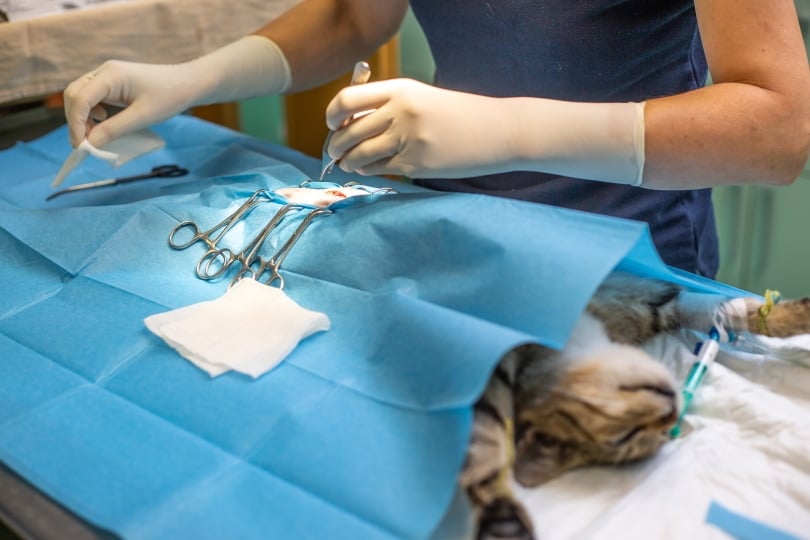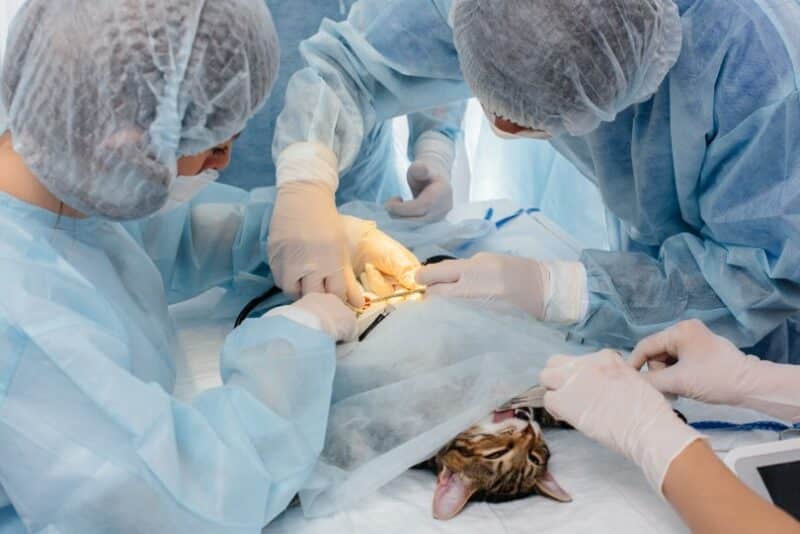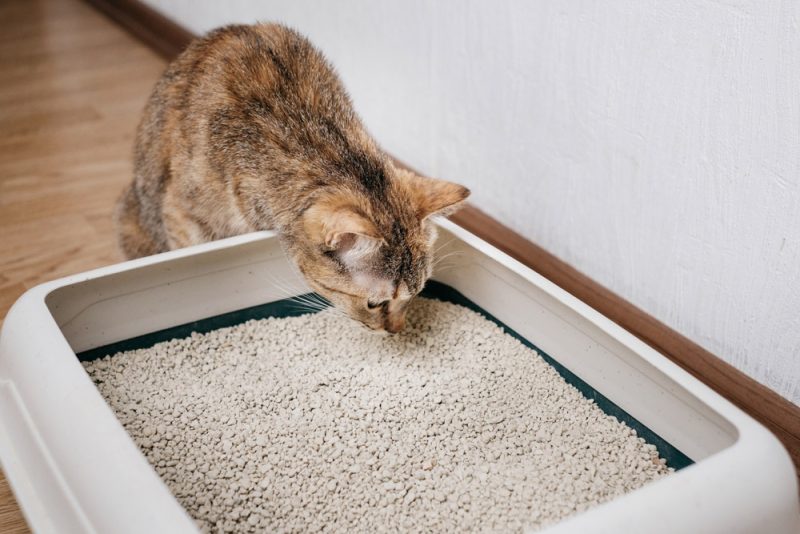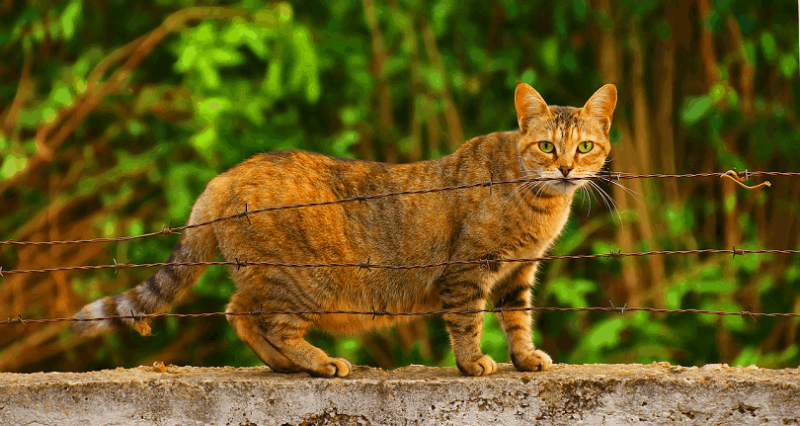In this article
Millions of people take their cats to the vet each year to have the vet spay them. It’s a routine surgery, in general veterinarians can spend between 15 to 20 minutes on the procedure.
That’s why we came up with this guide to highlight everything that you need to know. From the minimum age to spay your cat to the health benefits associated with it, we answered many of the questions that you might have about this surgery!
How Long Does It Take to Spay a Cat?
While spaying a cat is a serious surgery, it’s a relatively quick operation. Most vets can complete the procedure in just 15 to 20 minutes. So, you don’t need to worry about your cat staying under for an extended period.

How Old Until You Can Spay a Cat?
While it’s technically possible to spay a cat as early as 8 weeks, places like the Nashville Cat Clinic recommend bringing your cat in after they’re about 6 months old. This ensures that they’re old enough to handle the rigors of surgery but not so old that recovery is more challenging.
This is also around the first time that most cats enter heat for the first time, so if you do have an unneutered male cat in the house or if you have an outdoor cat, you might want to move up the spaying by a month or two to ensure that you don’t have any kittens!
Finally, you don’t want to go any longer than 6 months if you can help it. While there’s no maximum age to spay your cat and there are benefits no matter when you do it, the ASPCA states that to reduce the risk of tumors developing along your cat’s reproductive tract, it’s best to spay them before their first heat cycle.

How Long Does It Take for a Cat to Heal After Spaying?
The average time it takes for cats to heal from spaying is between 10 to 14 days. You’ll need to do your best to limit their movement during this time. Excessive movement can lead to further injuries and even death if there’s no prompt treatment after a complication. The good news is that once those 2 weeks are over, you and your cat can go back to your normal routine!
Is Spaying a Cat Painful?
Spaying is a surgery, so when your cat wakes up, there’s bound to be a bit of discomfort.
This is why it’s essential to take your cat to a high-quality vet to complete the surgery and to give them pain medication before and afterward. Just keep in mind to never give your cat anything—medicine, food, etc.—before a surgery without explicit approval from your vet. The last thing that you want is to complicate the surgery in some way!

Should You Spay Your Cat?
While it might be an uncomfortable procedure for your cat, you should absolutely spay them. Not only does this prevent unwanted kittens, but there are also many health benefits.
According to the ASPCA, unspayed cats are more susceptible to breast cancer and infections of the uterus. In fact, for cats, spaying reduces the likelihood of them having to deal with either of those problems by 90%! You also won’t have to experience your cat going into heat every year.
What Are the Risks of Spaying Your Cat?
The vast majority of the risks associated with spaying your cat are from rare complications, and the overall benefits outweigh those risks. Common complications include inflammation around the surgery site, the incision opening up due to excessive activity, infections, and swelling under the skin at the incision.
If any of these things occur, you must seek medical attention for your cat right away. Keep in mind that complications are more likely to occur in older cats, so the sooner you can spay your cat, the better.

Final Thoughts
There are so many health benefits that come with spaying your cat, so do yourself and your cat a favor and get the surgery done. It’s a quick surgery with a 2-week recovery time, and it can extend their life by years.
If you have any questions about the benefits, risks, and costs of spaying your cat, we highly recommend reaching out to a veterinary office for more information tailored explicitly to your cat!
If you need to speak with a vet but can't get to one, head over to PangoVet. It's an online service where you can talk to a vet online and get the advice you need for your pet — all at an affordable price!
Featured Image Credit: Andrii Medvednikov, Shutterstock
























